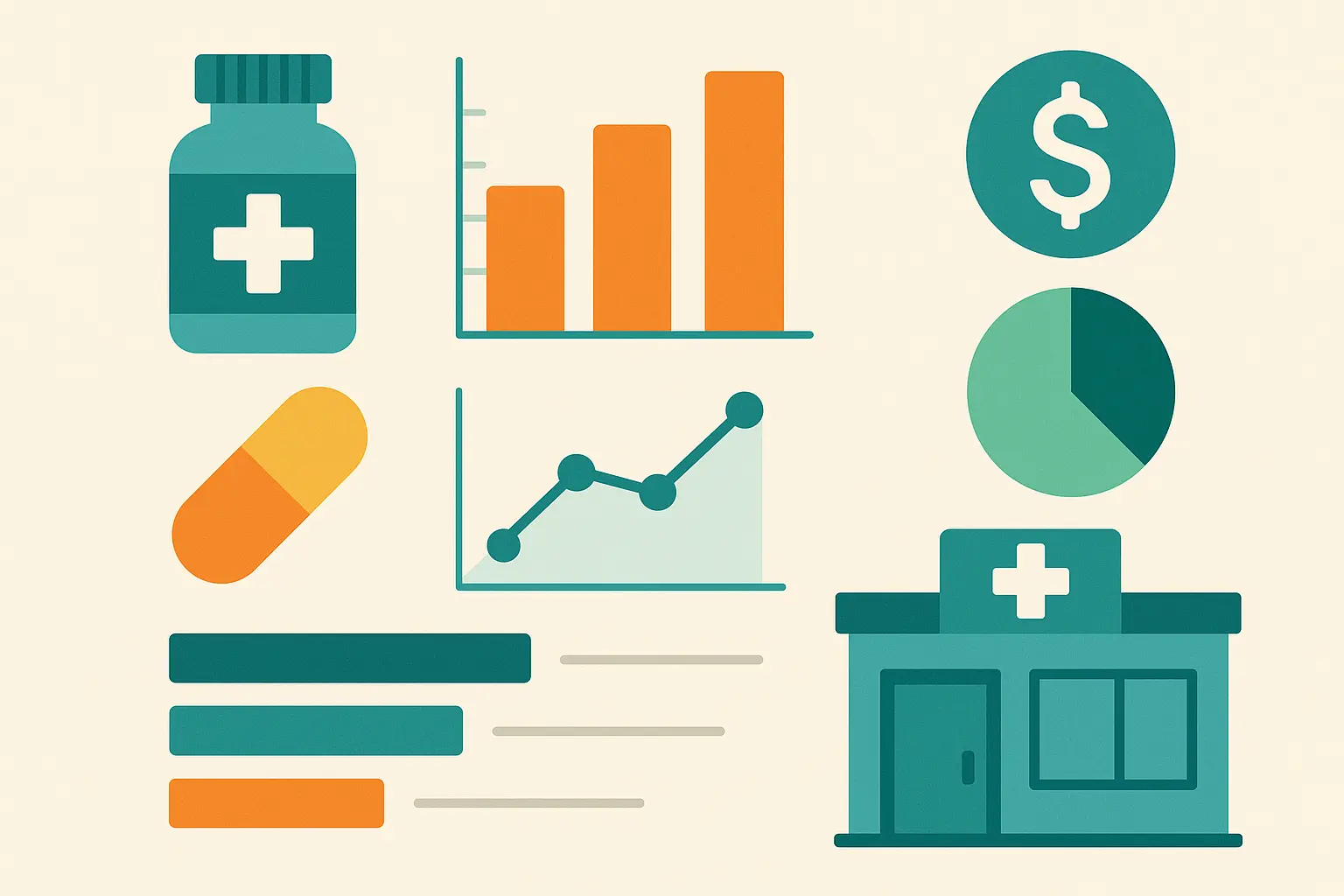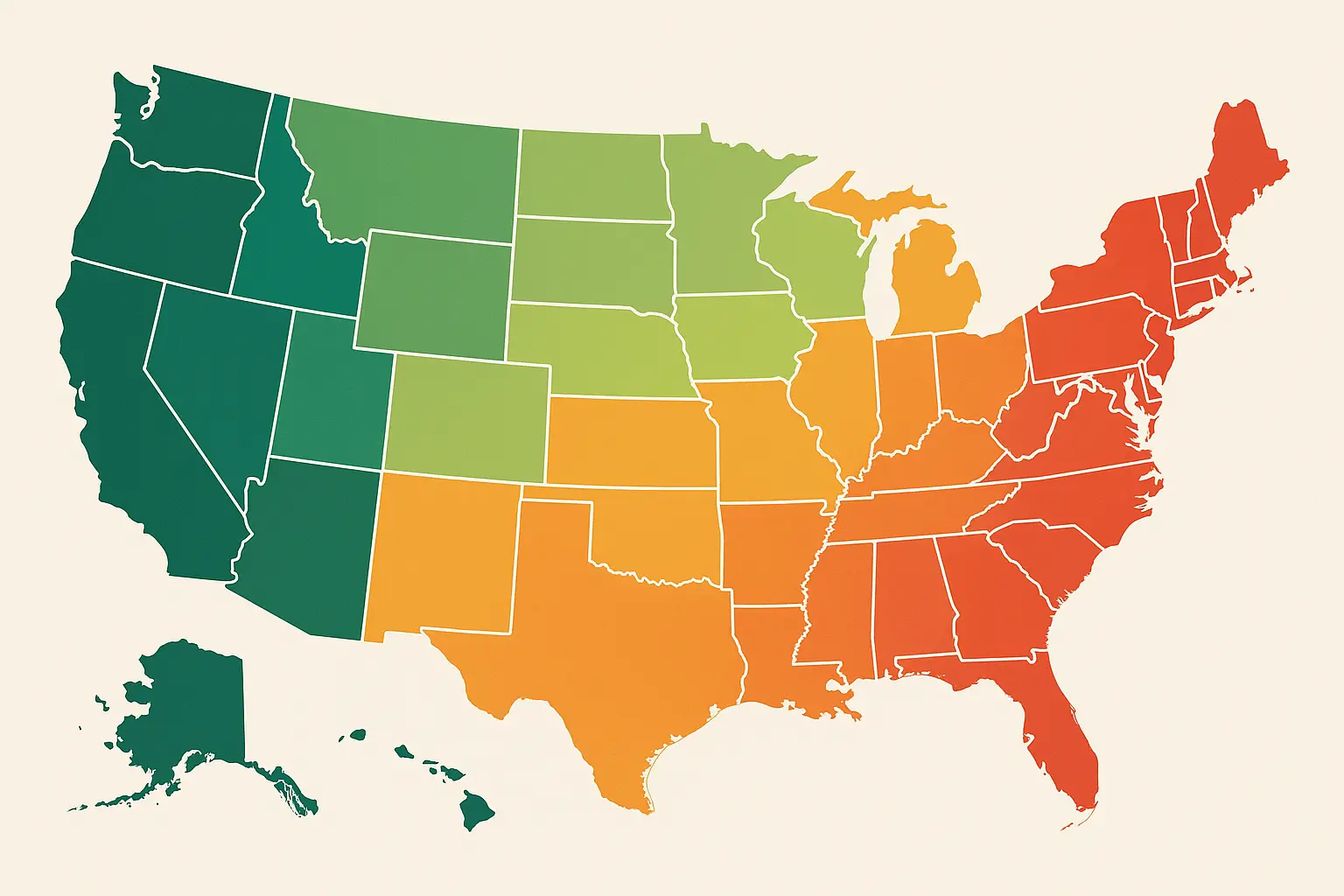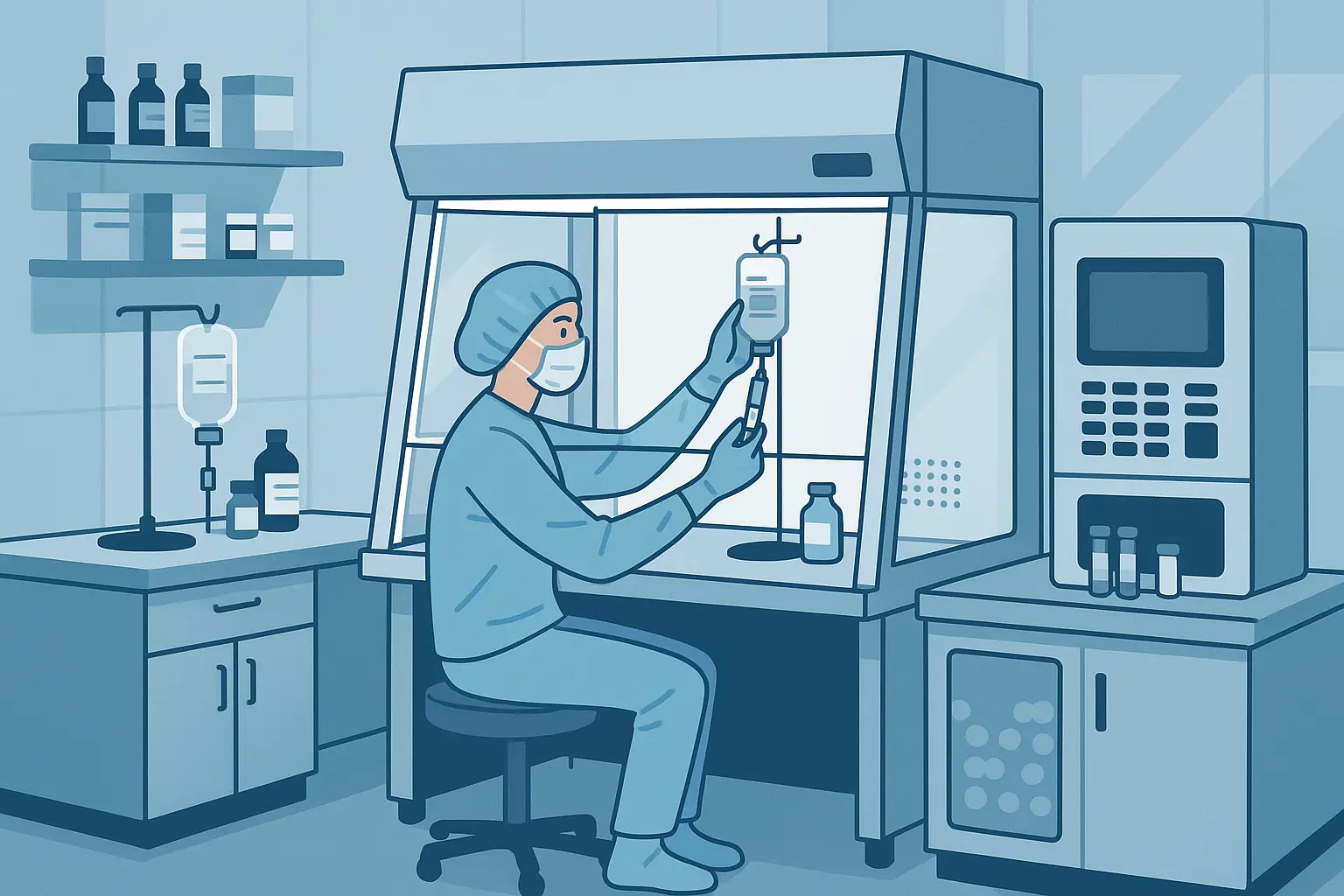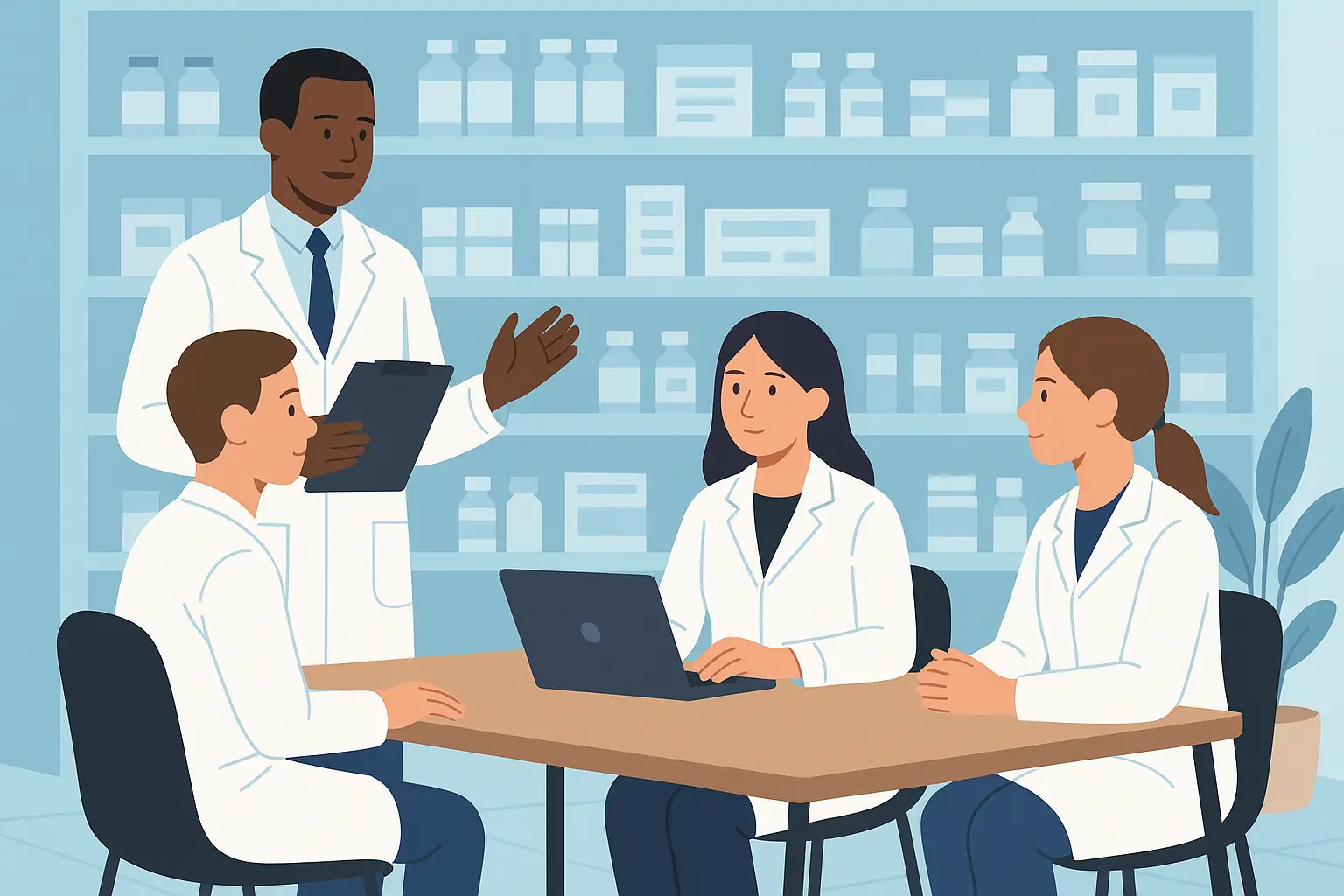Smart Strategies to Boost Your Pharmacy Assistant Pay

If you’re working as a pharmacy assistant, you might be wondering if you’re being paid fairly. The truth is, there’s often room to grow your income – but it takes knowing where to look and how to position yourself.
Most pharmacy assistants earn between $28,000-$42,000 annually, but that’s just the starting point. Recent data shows the average sits at $51,030 per year nationally, with the top earners making over $95,000. Whether you’re just starting out or have years under your belt, specific moves can significantly boost your earning potential.
This guide breaks down everything you need to know about pharmacy assistant compensation – from where the best-paying jobs are to negotiation tactics that actually work.

According to PharmTechsOnly career data, pharmacy assistants make $51,030 per year on average, or $24.53 per hour, in the United States. The top 10% earn over $95,000 annually while the bottom 10% earn under $28,392 per year.
Table of Contents
-
Understanding What You’re Really Worth
-
The Numbers Game: National Averages and Regional Hotspots
-
Where the Money Is: Industries That Pay Premium Rates
-
Your Career Roadmap: Strategic Development for Higher Pay
-
Negotiating Like a Pro: Getting the Pay You Deserve
-
Future-Proofing Your Income: What’s Coming Next
-
Beyond Base Pay: The Hidden Value in Benefits
-
Building Your Professional Brand for Maximum Earnings
TL;DR
-
Pharmacy assistant pay ranges from $25,000-$45,000 annually, with significant variation by location and workplace type
-
Hospital positions typically pay 15-20% more than retail pharmacy roles
-
Professional certification can add $3,000-$5,000 to your annual earnings
-
Geographic location dramatically impacts earning potential, with metro areas offering premium compensation
-
Moving to pharmacy technician roles can increase earnings by $8,000-$12,000 annually
-
Total compensation packages often add 20-30% value beyond base pay through benefits
-
Technology skills and specialized certifications create pay premiums of $2,000-$4,000
-
Strategic career planning and effective negotiation can maximize earning potential throughout your career
Understanding What You’re Really Worth
The pharmacy assistant pay landscape has evolved significantly in recent years. Pay can vary quite a bit depending on where you work and what skills you bring to the table. Your earning potential isn’t set in stone – market conditions, your skill set, and how you position yourself all influence what you can earn.
Understanding where you fit requires looking beyond simple averages at the factors that really drive compensation in this field.
The Real Numbers Behind Pharmacy Assistant Pay
When I started researching what pharmacy assistants actually earn, I was surprised by how much the numbers vary depending on your source. The baseline typically falls between $28,000-$42,000 annually, but that’s just the starting point.
Entry-level positions often begin around $25,000, while experienced assistants in high-demand markets can earn up to $45,000. What matters more than these averages is understanding where you fall within this range and what factors influence your specific situation.
Pay scales reflect both your skills and market positioning, with clear progression points as you gain experience.
|
Experience Level |
Annual Range |
Hourly Rate |
Key Factors |
|---|---|---|---|
|
Entry-Level (0-1 years) |
$25,000-$30,000 |
$12-$14 |
Basic training, retail focus |
|
Mid-Level (2-5 years) |
$32,000-$38,000 |
$15-$18 |
Certification, specialized skills |
|
Senior Level (5+ years) |
$40,000-$45,000 |
$19-$22 |
Leadership, hospital experience |
|
Top 10% Earners |
$45,000-$95,000 |
$22-$46 |
Premium markets, management roles |
How Experience Levels Impact Your Paycheck
Your experience level dramatically impacts earning potential, but the progression isn’t always linear. Significant jumps typically occur at specific milestones – around the 2-year mark when you’ve proven reliability, at 5 years when you’ve developed specialized skills, and at 10 years when you’re considered a senior team member.
Understanding these progression points helps you time career moves and negotiations more effectively.
Sarah started as a pharmacy assistant at CVS earning $13.50/hour ($28,080 annually). After obtaining certification and gaining 3 years of experience, she transitioned to a hospital pharmacy role earning $18.75/hour ($39,000 annually) – a 39% increase that demonstrates the value of strategic career planning.
For those looking to maximize their earning potential, learning how to ask for a raise with proper strategy and documentation can accelerate these natural progression points and help you secure the compensation you deserve.
Location Makes All the Difference
Where you work might be the single biggest factor affecting your pay. Metropolitan areas consistently offer higher compensation to offset living costs, but the premium varies significantly.
States like California, New York, and Massachusetts typically offer the highest base wages, while rural areas in the South and Midwest tend toward the lower end of the range. However, cost of living adjustments mean that a $35,000 income in Ohio might provide better purchasing power than $42,000 in San Francisco.
Regional data from PharmTechsOnly shows that pharmacy assistants make the most in California, Washington, Michigan and Pennsylvania, with significant location-based variations in compensation.
Where the Money Is: Industries That Pay Premium Rates
Not all pharmacy assistant jobs are created equal. Hospital-based positions consistently outpay retail counterparts by 15-20%, often with superior benefits packages. Specialty pharmacies and long-term care facilities frequently offer the highest compensation rates, reflecting the additional training and responsibilities these environments require.
Understanding these sector differences helps you target opportunities that align with your financial goals.
Recent workforce challenges have highlighted the value of pharmacy professionals. “A third of pharmacy technicians close to changing career, survey reveals” from The Pharmaceutical Journal shows that many pharmacy professionals feel undervalued and underpaid, with those actively looking to leave citing low pay and poor career opportunities as main reasons.
Understanding the broader healthcare compensation landscape, including how certified pharmacy tech salary compares to assistant roles, can help you make informed decisions about career advancement and specialization opportunities.
Hospital Systems: The Premium Option
Hospital pharmacy assistants enjoy several advantages beyond higher base pay. Shift differentials for evening and weekend work can add substantial income, while comprehensive healthcare packages often include benefits that would cost thousands if purchased independently.
The trade-off usually involves more complex responsibilities and stricter regulatory requirements, but the financial rewards typically justify the additional demands.
According to ERI compensation data, the average pay for a pharmacy assistant is $46,995 a year and $23 an hour in Arlington Heights, Illinois, with ranges between $35,011 and $55,454, demonstrating the significant variation in metropolitan market compensation.
Hospital settings consistently offer higher compensation than retail alternatives.
Specialty Pharmacy: Where Expertise Pays
Specialty pharmacies dealing with complex medications, chemotherapy, or rare diseases often offer the highest compensation in the field. These positions require additional training and carry greater responsibility, but they can provide pay premiums of 20-25% above standard retail positions.
The work is more demanding, but for those willing to develop specialized expertise, the financial rewards are substantial.
Your Career Roadmap: Strategic Development for Higher Pay
Building a higher-paying career as a pharmacy assistant isn’t about luck – it’s about making smart moves at the right times. The people earning top dollar in this field didn’t just wait around for raises. They got certified, learned new skills, and positioned themselves for better opportunities.
Here’s your step-by-step plan to systematically boost your earnings:
Your Career Development Checklist:
-
☐ Complete basic pharmacy assistant training
-
☐ Get certified through PTCB or similar organization
-
☐ Build 2+ years of solid experience
-
☐ Learn specialized skills (sterile compounding, inventory systems)
-
☐ Connect with other pharmacy professionals
-
☐ Research what others in your area are earning
-
☐ Keep track of your wins and contributions
-
☐ Apply for better positions or ask for a raise
Get Certified – It’s Your Fastest Path to More Money
Getting certified through the Pharmacy Technician Certification Board is probably the quickest way to bump up your pay. Certified assistants typically earn $3,000-$5,000 more per year than those without certification. The best part? The certification usually pays for itself within 12 months.
Plus, some positions simply won’t consider you without certification. It opens doors that would otherwise stay closed.
Specialized Skills That Pay Extra
Once you’re certified, consider specializing in areas like sterile compounding, chemotherapy prep, or inventory management. These specialized skills can boost your pay by another 10-15%.
The key is picking specializations that match what employers in your area actually need.
Take Michael, for example. After getting his basic certification, he specialized in sterile compounding. This let him move from retail pharmacy at $16/hour to hospital oncology at $22/hour – that’s an extra $12,480 per year.
Making the Jump to Pharmacy Technician
Many assistants use their experience as a stepping stone to become licensed pharmacy technicians. This move typically adds $8,000-$12,000 to your annual pay and opens up way more career options.
Yes, it requires more education and licensing, but the return on investment is solid.
The transition from pharmacy assistant to technician is becoming more accessible. “From Pharm Tech to Pharmacist” from Pacific University highlights that licensed pharmacists make on average 3.5 times more per year than their technician peers, and new flexible programs are making career advancement more achievable than ever.
To better understand your potential earnings growth, using a salary increase calculator can help you quantify the financial impact of transitioning from assistant to technician roles and plan your career investments accordingly.
|
Career Level |
Typical Pay |
What You Need |
Time Investment |
ROI |
|---|---|---|---|---|
|
Pharmacy Assistant |
$32,000 |
Certificate program |
3-6 months |
Baseline |
|
Certified Technician |
$42,000 |
Certification + experience |
1-2 years |
$10,000 increase |
|
Senior Technician |
$48,000 |
Advanced certifications |
3-5 years |
$16,000 increase |
|
Supervisor |
$55,000 |
Leadership experience |
5-7 years |
$23,000 increase |
Moving Into Leadership
If you’re good with people and like organizing things, supervisory roles offer some of the highest pay in the field – typically $45,000-$55,000. You’ll be managing other assistants, but it’s a clear path to higher earnings without leaving pharmacy work entirely.
Leadership advancement requires developing people management skills alongside your technical expertise, but it provides the upper tier of pharmacy assistant compensation.
Understanding the pharmacist assistant job description for leadership roles helps you prepare for these advancement opportunities.
Negotiating Like a Pro: Getting the Pay You Deserve
Getting paid more isn’t just about asking nicely. The assistants who successfully negotiate higher pay do their homework first. They know what they’re worth, they can prove their value, and they pick the right time to have the conversation.
Here’s how to prepare for a discussion that actually gets results:
Your Negotiation Preparation Template:
-
Research Phase
-
Current market rates for your position
-
Company policies and ranges
-
Your specific contributions and achievements
-
-
Documentation
-
Performance metrics and improvements
-
Additional responsibilities taken on
-
Certifications and training completed
-
-
Timing Strategy
-
Annual review periods
-
After major accomplishments
-
During budget planning cycles
-
-
Negotiation Points
-
Specific target with justification
-
Alternative compensation (benefits, flexibility)
-
Professional development opportunities
-
Build Your Case with Real Numbers
Start documenting your wins way before you ask for more money. Keep track of things like:
-
How you’ve improved accuracy or efficiency
-
Times you’ve trained new staff
-
Process improvements you’ve suggested
-
Extra responsibilities you’ve taken on
Jennifer did this perfectly. She tracked her achievements for 18 months: cut prescription errors by 15%, trained three new people, and created an inventory system that saved five hours per week. When review time came, she had solid proof of her value and got a $4,000 raise.
When preparing for negotiations, understanding salary sacrifice calculator principles can help you evaluate alternative compensation packages and negotiate benefits that provide additional value beyond base pay increases.
Know What You’re Worth
Don’t just guess what you should be earning. Research what similar positions pay in your area. Talk to other pharmacy professionals. Look at job postings to see what employers are offering.
This gives you real data to back up your request instead of just hoping for the best.
Future-Proofing Your Income: What’s Coming Next
The pharmacy world is changing fast. Understanding where things are heading helps you position yourself for the best opportunities while avoiding areas that might not have much of a future.
This section explores where the field is moving and how you can align your career development with the most promising opportunities.
Tech Skills That Pay More
Modern pharmacies run on sophisticated computer systems, and assistants who master these platforms can earn $2,000-$4,000 more annually. While some worry that technology will replace pharmacy workers, it’s actually creating opportunities for those who embrace it.
Proficiency in electronic health records systems like Epic or Cerner adds significant value to your skill set. Instead of just counting pills, you might find yourself doing more patient counseling and clinical support – work that typically pays better.
Where the Jobs Are
Certain states consistently offer the best combination of job availability and good pay. California, Texas, Florida, and New York have the most opportunities, often with above-average wages.
If you’re willing to relocate, these geographic hotspots might be worth considering for maximizing your earning potential.
Beyond Base Pay: The Hidden Value in Benefits
Your total compensation includes way more than just your hourly wage. Benefits can add 20-30% to what you’re actually earning, so don’t ignore them when comparing job offers.
Understanding the complete package is crucial for making informed career decisions. I’ve discovered that benefits often make some lower-paying positions more valuable than higher-paying roles with poor benefit packages.
Health Insurance Adds Real Value
Most pharmacy positions offer solid health insurance, with employers covering 70-90% of the premiums. For a family, this benefit alone might be worth $15,000-$20,000 per year.
Dental and vision coverage, while smaller components, add additional value that should factor into your total compensation calculations when comparing job opportunities.
Retirement and Other Perks
Many healthcare employers match your 401(k) contributions – typically 3-6% of your income. Some also offer tuition reimbursement and will pay for your certifications, which can save you $1,000-$3,000 annually.
Additional benefits like health savings accounts and flexible spending arrangements provide tax advantages that increase your take-home pay.
Quick Benefits Checklist:
-
☐ How much of your health insurance does the employer cover?
-
☐ Is there 401(k) matching and what’s the vesting schedule?
-
☐ How much paid time off and sick leave do you get?
-
☐ Will they pay for training and certifications?
-
☐ Are there health savings account or flexible spending options?
-
☐ What life and disability insurance is included?
-
☐ Are there employee discounts or other perks?
Building Your Professional Brand for Maximum Earnings
In a competitive job market, how you present yourself matters. Creating a compelling professional presentation is essential for accessing the highest-paying opportunities. Your resume, professional network, and online presence all contribute to how potential employers perceive your value.
Resume Builder IQ’s AI-powered platform helps pharmacy assistants create resumes that effectively showcase their certifications, experience with pharmacy management systems, and patient care skills in formats that both hiring managers and automated screening systems recognize and value. The platform’s industry-specific templates and ATS-friendly designs ensure your professional achievements translate into interview opportunities and negotiations that reflect your true market worth.
When crafting your professional documents, using ATS-friendly resume formatting ensures your pharmacy assistant experience and certifications pass through automated screening systems, while understanding professional resume format principles helps you present your qualifications in ways that command higher offers.
The assistants who land the highest-paying positions are those who can effectively communicate their value to employers through well-crafted professional materials.
Your Next Steps
Here’s the bottom line: your pay as a pharmacy assistant doesn’t have to stay the same forever. With the right approach – getting certified, developing specialized skills, and positioning yourself strategically – you can significantly boost your earnings.
The key is picking one or two strategies and actually following through. Maybe that’s researching certification programs, documenting your achievements for your next review, or exploring opportunities in higher-paying sectors like hospitals.
Remember that your career development is an ongoing process, not a one-time event. The assistants earning top dollar are the ones who continuously invest in their skills, stay informed about market trends, and aren’t afraid to advocate for their worth.
Start somewhere. The assistants earning top dollar are the ones who invested in themselves along the way. Your future self will appreciate the effort you put in today.









